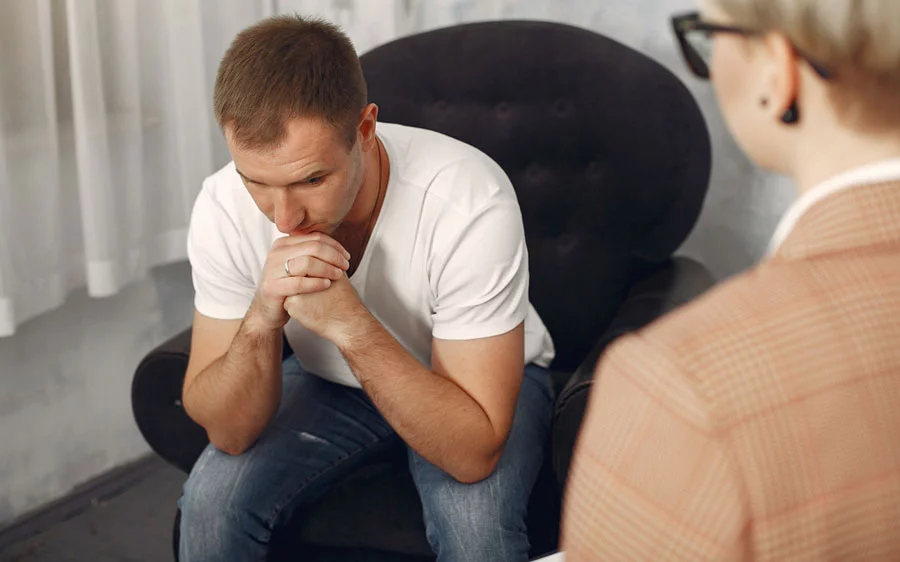Cocaine Addiction and Cocaine Detox
Cocaine addiction can have devastating effects on a person’s personal and professional life, affecting Americans throughout the country. According to the Substance Abuse and Mental Health Services Administration, cocaine is involved in nearly one out of every five overdose deaths. Dependence on the drug comes with life-altering consequences from increased health risks to legal issues and broken relationships. Attempting a cocaine detox is not easy but breaking the cycle of chronic cocaine abuse is the only way to start a healthier future.
Cocaine withdrawal symptoms can be intense and difficult to endure without the right medical assistance, making it even harder to quit. Fortunately, there are many treatment programs available to those who are willing to take the first step and begin their recovery journey from cocaine addiction.
Keep reading to learn more about cocaine detox programs and how you can overcome cocaine addiction with the help of Catalina Behavioral Health in Tucson Arizona!
What Are the Common Signs and Symptoms of Cocaine Addiction?

Substance use disorders are a serious issue affecting millions of people around the world. It can be difficult to recognize if someone is struggling with an addiction, especially when it comes to cocaine, as major risk factors and symptoms vary depending on the particular person.
Cocaine is a powerful stimulant drug that produces feelings of euphoria and increased energy. But the effects are short-lived and can lead to addiction quickly. Here are some common signs and symptoms of cocaine abuse or addiction to look out for.
Behavioral Changes
One of the most common signs of cocaine use or drug addiction is behavioral changes. People with a cocaine addiction may become more secretive, isolated, or disengaged from their usual activities and hobbies.
They may also start using addictive substances in order to cope with stressors in their life rather than seeking help through healthier outlets such as talking to friends and family or going to counseling sessions. They might also become more agitated or easily angered when confronted about their substance use disorders.
Physical Cocaine withdrawal Symptoms
People who abuse cocaine can experience physical symptoms as well as behavioral changes. People who have been abusing the drug for some time may notice weight loss due to a lack of appetite, and constricted blood vessels which can cause headaches, nosebleeds, chest pain, nausea, vomiting, insomnia, and restlessness.
Other physical symptoms include dilated pupils, sweating, tremors or shaking hands, palpitations (rapid heartbeat), increased body temperature and blood pressure, feelings of paranoia or anxiety, and an overall sense of unease.
Psychological Symptoms
When someone struggles with a cocaine addiction they may experience psychological symptoms as well such as depression or anxiety disorders which can further complicate their recovery efforts if left untreated. Additionally, they may experience suicidal thoughts or impulses as well as intense cravings for the drug which can make it difficult for them to stay sober without professional help.
24 Hour Cocaine Helpline – Reach Out Now!
What is the Cocaine Detox Process?
Cocaine detox is the process of removing cocaine from the body. It begins with a period of abstinence from drug abuse and then progresses to other treatments such as medication, therapy (including family therapy sessions), and lifestyle changes.
The goal of the cocaine detox process is to get off the drug and safely recover in a manner that will reduce the physical and psychological withdrawal symptoms caused by stopping drug use so that people can eventually lead healthier lives free from addiction. It’s one of the first steps you need to take if you’re trying to beat cocaine addiction.
Cocaine Withdrawal Symptoms
Cocaine is a powerful stimulant that can cause severe physical and psychological side effects. When someone who has been using cocaine for an extended period of time stops using it, they may experience cocaine withdrawal symptoms.
It’s important to understand the potential physical and emotional symptoms associated with cocaine withdrawal so you can be prepared for the process.
Physical Cocaine Withdrawal Symptoms
When someone stops using cocaine, they may experience physical withdrawal symptoms that range from mild to severe in intensity. Some of the most common physical withdrawal symptoms are exhaustion, headaches, increased appetite, muscle pain, nausea and vomiting, and increased sensitivity to pain.
These symptoms typically begin within a few hours after the person last used cocaine and can persist for several days or weeks before dissipating.
Additionally, some people may develop cravings for cocaine during their withdrawal process. Cravings are intense urges to use again in order to relieve unpleasant feelings associated with withdrawal. While cravings can be difficult to manage on your own, there are effective treatments available that can help reduce cravings and promote abstinence from drug use.
Emotional Symptoms of Cocaine Withdrawal
In addition to physical cocaine withdrawal symptoms, people withdrawing from cocaine may also experience a variety of emotional or psychological symptoms. These include depression, anxiety, irritability, difficulty concentrating or making decisions, and reduced interest in activities once enjoyed.
These symptoms often arise due to changes in brain chemistry caused by long-term cocaine use; as the body adjusts back to its normal functioning without the presence of cocaine in its system, these psychological effects become more prominent.
The Benefits of Cocaine Detox

Cocaine detox can provide many benefits for those who are struggling with addiction. One of the most obvious benefits is that it provides an opportunity for people to start over and begin their journey toward sobriety without having any traces of the drug in their system.
Another benefit is that it allows individuals to gain insight into their own behaviors and triggers so that they can better understand why they use drugs in the first place. This is difficult to do while you’re still using the drug.
This knowledge can then be used to create strategies for avoiding relapse in the future.
Finally, cocaine detox also provides users with support from medical professionals who can guide them through this difficult process and ensure that they stay safe during their recovery journey.
Cocaine Detox and Withdrawal Management
The first step in understanding cocaine withdrawal management is to understand the different types of detox available. Medical detox is typically done in a hospital or specialized treatment program under the care of medical professionals who can monitor the patient’s progress carefully and make sure they have some comfort and support during their detox period.
On the other hand, non-medical detox, or at-home cocaine detox, involves managing symptoms without professional help or medication. Home detox from cocaine will be more difficult but may also be a viable option for some with strong social support systems and the ability to self-regulate their consumption of cocaine. But this approach is next to impossible with a strong cocaine use disorder, as the temptation to get more cocaine can become all-consuming.
Medical Detox Hotline – Get Immediate Help!
The Benefits of a Medical Detox
If you are considering engaging in a cocaine detox program, it is important to know that while it may seem like a daunting task, medical detox can be the best way to ensure your safety and health while trying to get off cocaine. Here’s why:
A Safe and Secure Environment
One of the main advantages of undergoing a medical detox from cocaine is that you will detox in a safe and secure environment. This means that you will have access to trained professionals who will monitor your progress throughout the entire process and provide any necessary care or assistance if needed. You don’t have to worry about anything but staying off cocaine.
Being in a safe and controlled setting also helps reduce the risk of relapse and other potential dangers associated with withdrawal symptoms.
Medical Support
Another benefit of undergoing a medical detox is that you will receive full support from qualified medical personnel throughout your stay. This includes providing medications such as benzodiazepines or other anti-anxiety medications to help manage withdrawal symptoms such as restlessness, agitation, nausea, and vomiting.
You may also be provided with non-addictive sleep aids and a healthy diet.
Additionally, these medications can help ease any pain associated with withdrawal symptoms. Furthermore, being monitored by medical professionals gives you peace of mind knowing that if any complications arise during the process they can be addressed immediately.
Medically supervised cocaine detox programs can help to stabilize mood, reduce depression, create healthy habits, and overall prevent relapse by withdrawing from cocaine safely. Safe detox is also an important foundation for our comprehensive cocaine addiction treatment program. While in detox, you may also find helpful our supplemental nutrition counseling and will have the support of our dedicated clinical staff at Catalina Behavioral at all times.
Treatment Options Following Cocaine Detoxification

After completing detoxification, it’s important to understand the different treatment program options that are available to help support long-term sobriety.
Rehabilitation Centers
Rehabilitation centers provide intensive therapy and support designed to help those with addiction learn how to manage their thoughts and behaviors around drugs and alcohol. With a combination of medical care and psychological support, these healthcare providers can help individuals struggling with drug use and cocaine addiction make positive changes in their lives. Effective treatment for early recovery can be done via inpatient or outpatient programs.
Inpatient Treatment
An inpatient treatment program is an intensive form of mental health or addiction treatment where individuals are treated in a residential setting and stay at a facility for a designated period of time. This type of care involves 24/7 monitoring by medical staff and can be tailored to meet the unique needs of each client. Inpatient care includes access to therapy, medication, and holistic treatments such as meditation, yoga, and art therapy.
Outpatient Care
Outpatient addiction treatment care is less intensive than inpatient care but still provides individuals with guidance and support throughout their recovery journey. Outpatient programs typically involve attending sessions a few days per week for several hours at a time with weekends off or monitored free time.
Outpatient programs also offer access to behavioral therapy and medication management services as well as other forms of holistic care. For many people, these programs are as effective as inpatient programs.
Group Therapy
Group therapy is an integral part of many addiction treatment programs because it encourages individuals to share experiences and challenges with others who are on similar paths. It also helps build accountability within a group setting which can be beneficial for those who need extra motivation during their recovery journey.
Group therapy typically involves 6-12 participants discussing topics such as coping strategies, relapse prevention plans, and how to manage triggers in healthy ways.
One-on-One Therapy

One-on-one therapy is another important component of addiction treatment programs as it allows individuals to discuss more personal issues in a private setting without fear of judgment or criticism from others in the room.
During one-on-one sessions, individuals can focus on how to develop skills to cope with underlying issues that may have contributed to addictive behaviors in the past. This type of therapy is often combined with group sessions for maximum effectiveness in treating substance abuse disorders.
Support Groups and Twelve Step Groups
Support groups, like Narcotics Anonymous or SMART Recovery meetings, are another important part of recovery from cocaine addiction. These groups provide an opportunity for those affected by addiction to come together in a safe environment and share their stories with one another once they’re out in “the real world.”
Members of these groups can offer each other emotional support as they work toward long-term sobriety and can even provide practical advice on how best to cope with difficult situations or triggers that might lead them back into using drugs again.
Get Licensed Cocaine Treatment Options Now!
Get Treatment Options for Cocaine Now
Cocaine is an incredibly dangerous and addictive drug and the effects of addiction are far-reaching. Thankfully, with help from professionals and the right type of treatment, those suffering from cocaine addiction can detox, get back on track, and reclaim their lives.
Cocaine detox is not easy but with patience, determination, and a supportive system around them, someone struggling with cocaine addiction can stop feeling controlled by drugs and regain control of their life – often in a way they never thought possible before. This journey will always come with setbacks along the way, but perseverance prevails in the end.
For help with a mental illness, a cocaine addiction, or an addiction to other substances, contact Catalina Behavioral Health today to get your journey started in a safe, drug-free environment.
All calls are confidential, so please reach out now to get options for a better life for yourself and your loved ones!




